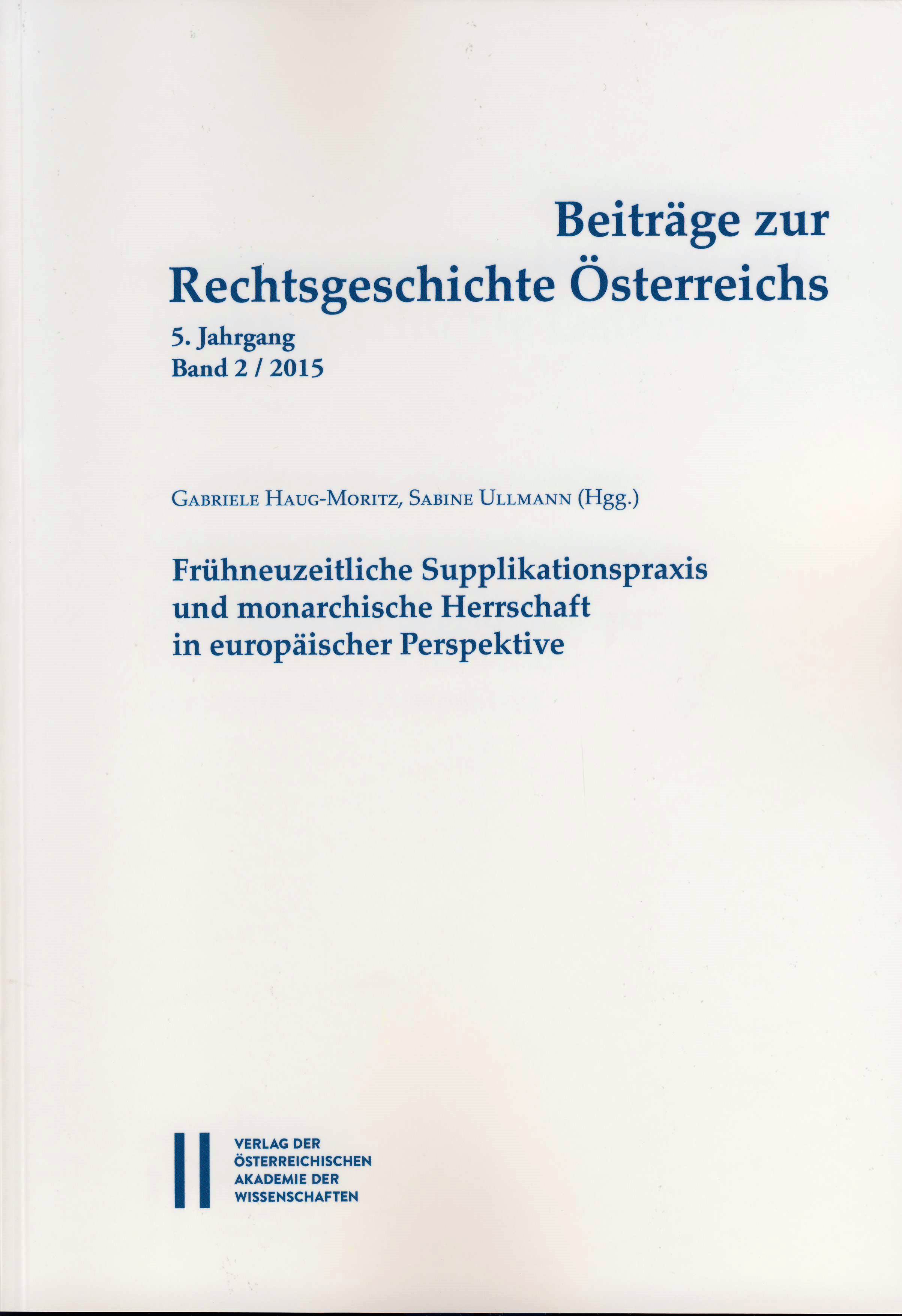|
 |
Gabriele HAUG-MORITZ, Graz/Sabine ULLMANN, Eichstätt
Frühneuzeitliche Supplikationspraxis und monarchische Herrschaft
in europäischer Perspektive: Einleitung
Ulrich HAUSMANN, Eichstätt
Sich ahn höhern Orten beclagen unnd das kayserliche Recht darüber ahnrueffen
Herkunft, Zielsetzung und Handlungsstrategie supplizierender Untertanen am
Reichshofrat Kaiser Rudolfs II. (1576–1612) unter Einbeziehung
der Überlieferung süddeutscher Archive
Thomas SCHREIBER, Graz
Die Ausübung kaiserlicher Gnadengewalt durch den Reichshofrat
Untertanensuppliken am Reichshofrat Kaiser Rudolfs II. (1576–1612)
Gunter VASOLD, Graz
Vom „Allerunderthenigsten Anruffen“ zum analytischen Abrufen
Ein Werkzeug zur kooperativen Erfassung, Verwaltung und Analyse von
Untertanensuppliken
Tobias SCHENK, Göttingen
Das frühneuzeitliche Kaisertum – ein Faktor der Alltagsgeschichte?
Überlegungen auf Grundlage der Reichshofratsakten
Eva ORTLIEB, Graz
Untertanensuppliken am Reichshofrat Kaiser Karls V.
Christian LACKNER, Wien
„Fiat (ut petitur).“ Zur Erledigung von Suppliken in der Hofkanzlei König
Maximilians I. in den 1490er Jahren
Irene KUBISKA-SCHARL, Wien/Michael PÖLZL, Wien
„Formalisierte Gnade“. Das Supplikationswesen am Wiener Hof im 18. Jahrhundert
am Beispiel supplizierender Reichshofräte
Stefan BRAKENSIEK, Duisburg-Essen
Supplikation als kommunikative Herrschaftstechnik in zusammengesetzten
Monarchien
Birgit EMICH, Erlangen-Nürnberg
Gnadenmaschine Papsttum. Das römische Supplikenwesen zwischen
Barmherzigkeit und Bürokratie
Lothar SCHILLING, Augsburg
Gnadengewalt und höchstrichterliche Gewalt im frühneuzeitlichen Frankreich
(ca. 1550 bis ca. 1715)
…
|



